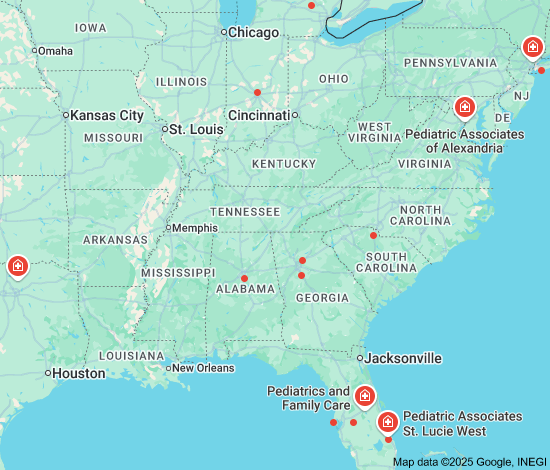Unlocking Opportunities: Navigating the Cross-Border Landscape for Global Growth
The Impact of Cross-Border Trade on Global Economy
Cross-border trade plays a pivotal role in shaping the global economy, facilitating the exchange of goods and services between countries. This interconnected web of trade relationships has far-reaching implications for businesses, consumers, and economies worldwide.
One of the primary benefits of cross-border trade is the opportunity for countries to specialize in producing goods and services in which they have a comparative advantage. This specialization leads to increased efficiency and productivity, driving economic growth and creating job opportunities.
Moreover, cross-border trade fosters competition, which can lead to lower prices for consumers and a wider variety of products to choose from. Competition also encourages innovation as companies strive to differentiate themselves in the global marketplace.
However, cross-border trade is not without its challenges. Tariffs, trade barriers, and geopolitical tensions can hinder the flow of goods and services between countries, impacting businesses and consumers alike. Additionally, fluctuations in currency exchange rates can affect the cost of imports and exports, influencing trade dynamics.
In recent years, advancements in technology have further transformed cross-border trade. E-commerce platforms have made it easier for businesses to reach customers across the globe, breaking down traditional barriers to entry into foreign markets.
As we navigate an increasingly interconnected world, understanding the complexities of cross-border trade is essential for businesses seeking growth opportunities and policymakers shaping international economic policies. By fostering cooperation and open dialogue between nations, we can harness the full potential of cross-border trade to drive sustainable economic development and prosperity for all.
7 Essential Tips for Navigating Cross-Border Transactions Successfully
- Research customs regulations and import/export restrictions of the countries involved.
- Ensure all necessary documentation is prepared and accurate before shipping goods across borders.
- Consider hiring a customs broker or freight forwarder to assist with the process.
- Be aware of any applicable taxes, duties, and fees that may apply when crossing borders.
- Choose reliable shipping methods to ensure timely delivery and minimize potential issues.
- Communicate clearly with all parties involved in the cross-border transaction to avoid misunderstandings.
- Stay informed about current events or changes in regulations that may impact cross-border operations.
Research customs regulations and import/export restrictions of the countries involved.
It is crucial to thoroughly research customs regulations and import/export restrictions of the countries involved in cross-border trade. Understanding these regulations is essential for ensuring compliance with legal requirements and avoiding potential delays or penalties. By familiarizing oneself with the specific rules and restrictions of each country, businesses can streamline their import/export processes, mitigate risks, and maintain smooth operations across borders.
Ensure all necessary documentation is prepared and accurate before shipping goods across borders.
To ensure a smooth and efficient process when shipping goods across borders, it is crucial to have all necessary documentation prepared and accurate. Proper documentation not only helps comply with customs regulations but also facilitates the timely clearance of goods through border checkpoints. By double-checking and verifying the accuracy of paperwork such as invoices, packing lists, and permits before shipment, businesses can minimize delays, avoid penalties, and maintain a reliable supply chain network for seamless cross-border trade.
Consider hiring a customs broker or freight forwarder to assist with the process.
When engaging in cross-border trade, it is advisable to consider hiring a customs broker or freight forwarder to streamline the import and export process. These professionals possess expertise in navigating complex customs regulations, handling documentation, and managing logistics efficiently. By enlisting their services, businesses can ensure compliance with international trade laws, minimize delays at border crossings, and optimize supply chain operations. Ultimately, partnering with a customs broker or freight forwarder can help businesses navigate the intricacies of cross-border trade with ease and confidence.
Be aware of any applicable taxes, duties, and fees that may apply when crossing borders.
When engaging in cross-border activities, it is crucial to be mindful of any relevant taxes, duties, and fees that may be imposed when crossing borders. These additional costs can vary depending on the country and the goods or services being transported. By staying informed about the potential financial implications of crossing borders, individuals and businesses can avoid unexpected expenses and ensure compliance with regulations, ultimately facilitating smoother transactions and operations across international boundaries.
Choose reliable shipping methods to ensure timely delivery and minimize potential issues.
When engaging in cross-border trade, it is crucial to select trustworthy shipping methods to guarantee on-time delivery and reduce the risk of potential logistical challenges. By opting for reliable shipping services, businesses can enhance customer satisfaction, maintain operational efficiency, and mitigate the impact of delays or disruptions that may arise during international shipments. Prioritizing secure and efficient shipping solutions is essential in navigating the complexities of cross-border trade and ensuring a seamless experience for both sellers and buyers.
Communicate clearly with all parties involved in the cross-border transaction to avoid misunderstandings.
Clear communication is crucial when engaging in cross-border transactions to prevent misunderstandings and ensure smooth interactions with all parties involved. By establishing transparent lines of communication and providing detailed information, businesses can mitigate potential risks and build trust across international borders. Effective communication helps clarify expectations, resolve issues promptly, and foster positive relationships that are essential for successful cross-border transactions.
Stay informed about current events or changes in regulations that may impact cross-border operations.
Staying informed about current events and regulatory changes that could affect cross-border operations is crucial for businesses navigating the complexities of international trade. By remaining vigilant and proactive in monitoring developments, organizations can adapt their strategies and operations to comply with new regulations, anticipate potential challenges, and seize opportunities in the global marketplace. Keeping abreast of the latest news and updates ensures that businesses can make informed decisions that align with changing cross-border dynamics, ultimately enhancing their competitiveness and resilience in an ever-evolving global economy.

